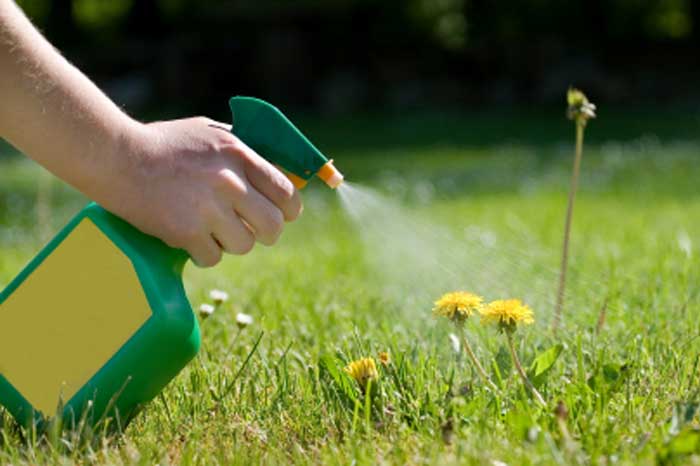What you need to know about glycophosphate.
When trying to grow a garden, weeds can be the most annoying thing in the world. It doesn’t matter if you want a fairy garden, a huge backyard greenhouse, or a tiny nano garden, if there are weeds growing, your plants will die. This is why there are so many different herbicides and weed killers floating around the market today. One of the most popular–a product name Roundup–is used in many homes around North America. However, a drawback of the product is the fact that it is made from a strong chemical called glycophosphate–or just glyphosate, as it’s more commonly known.

Health Risks of Glycophosphate
According to Mercola [1], the health risks of glyphosate are numerous.
To begin with, the damage done to the body by this chemical don’t show up immediately, but they take time. The negative impact caused by glyphosate to the body manifests slowly, but it continues to worsen as inflammation takes over in every cell of the body. You won’t see any health problems right away, but things will get worse and worse as time passes.
Why is inflammation of the cells so bad? Well, inflammation is usually your body’s response to foreign invaders, such as bacteria and germs. When something is wrong in your body, your immune system triggers an inflammatory response in order to halt the spread of the disease. It deals with the problem, focusing all of its attention on restoring your body back to health. If there is widespread inflammation in the body, it causes the immune system to be weakened, thereby leaving your body vulnerable to infections.
When mammals (humans including) ingest glycophosphate, the chemical blocks the production of an enzyme called CYP. This enzyme is supposed to detoxify the human body, and its purpose is to get rid of the chemicals that your body cannot eliminate on its own. If these enzymes cannot be produced, the human body cannot eliminate the toxins and chemicals. This can lead to a number of serious health problems, such as cancer, toxicity, and organ damage.
Glyphosate disrupts the shikimate pathway in weeds, preventing them from growing and producing new cells. Humans and other mammals do not have this pathway, but the bacteria in the human intestines do. This means that the chemical disrupts the healthy growth and spread of gut bacteria, which causes a number of serious digestive problems.

However, your gut bacteria isn’t only vital for your digestive health, but doctors have long believed that the bacteria in your intestines also play an important role in your immune system. After all, most of the threats your body will face come from the food you eat, therefore most of your immune activity is located in your digestive system. If you don’t have the proper bacteria to kill off invading bacteria from your food, you could end up with all manner of health problems thanks to your weakened immune system.
The consumption of this chemical has been linked to a number of reproductive health issues, which can lead to problems like birth defects, infertility, and miscarriages, among others. Mothers who consume high doses of this chemical via GMO foods can increase the risk of their child being born with autism. This is because the toxic chemical can affect the endocrine (hormone) system, and this disruption of the important hormone system can cause all kinds of reproductive health issues.
[1] http://articles.mercola.com/sites/articles/archive/2013/05/14/glyphosate.aspx









Andy, what wasn’t mention in your article here is how to eliminate this stuff from our bodies. Any ideas or thoughts on this that you may have come across when writing this?
Hi! Glad you asked and we’ll post a follow-up story to this, but in the meantime, some helpful ideas: adding fresh organic lemon juice to water (forces better liver detox), and steering clear of non-organic foods. Apparently there’s some evidence of water run off too, so being careful about fish is always a good idea.
CYP? Which cytochrome P450 do you mean? There’s at least 60 genes in the human body that encode for a CYP.
Is there really only one source of information in this article?
I mean your opinion would be far more credible if more sources were cited, especially if they were from primary scientific literature sources. This Mercola article is simply reviewing other people’s research, and regardless of their credentials, they could be misinterpreting the information from those articles.
In addition, there is also a bias from this source of information. It’s a website that promotes and sells natural products.
I’m not trying to be overbearing or critical, I would just like to give you an opinion so you can give a stronger argument to your readers.